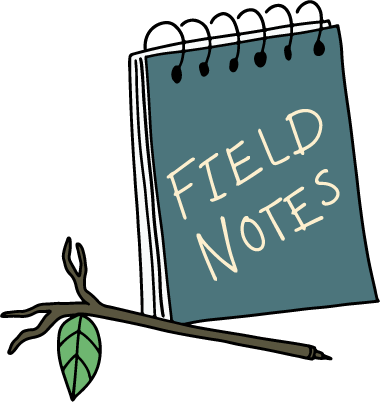Every week in the climate, science, social justice, and environmental spaces is as diverse as Uproot’s membership. Field Notes, our week-in-the-life blog posts, are snapshots of the varied experiences that make our community so vibrant.
Field Correspondent
Name: Alex Ip
Pronouns: he/him/his
Location: Cambridge, MA
Job description: I’m the Editor-in-Chief of The Xylom and a student in the MIT Graduate Program in Science Writing (GPSW).
Years of experience: 5
Social media handles: @alexip718
One word to describe your week: fruitful
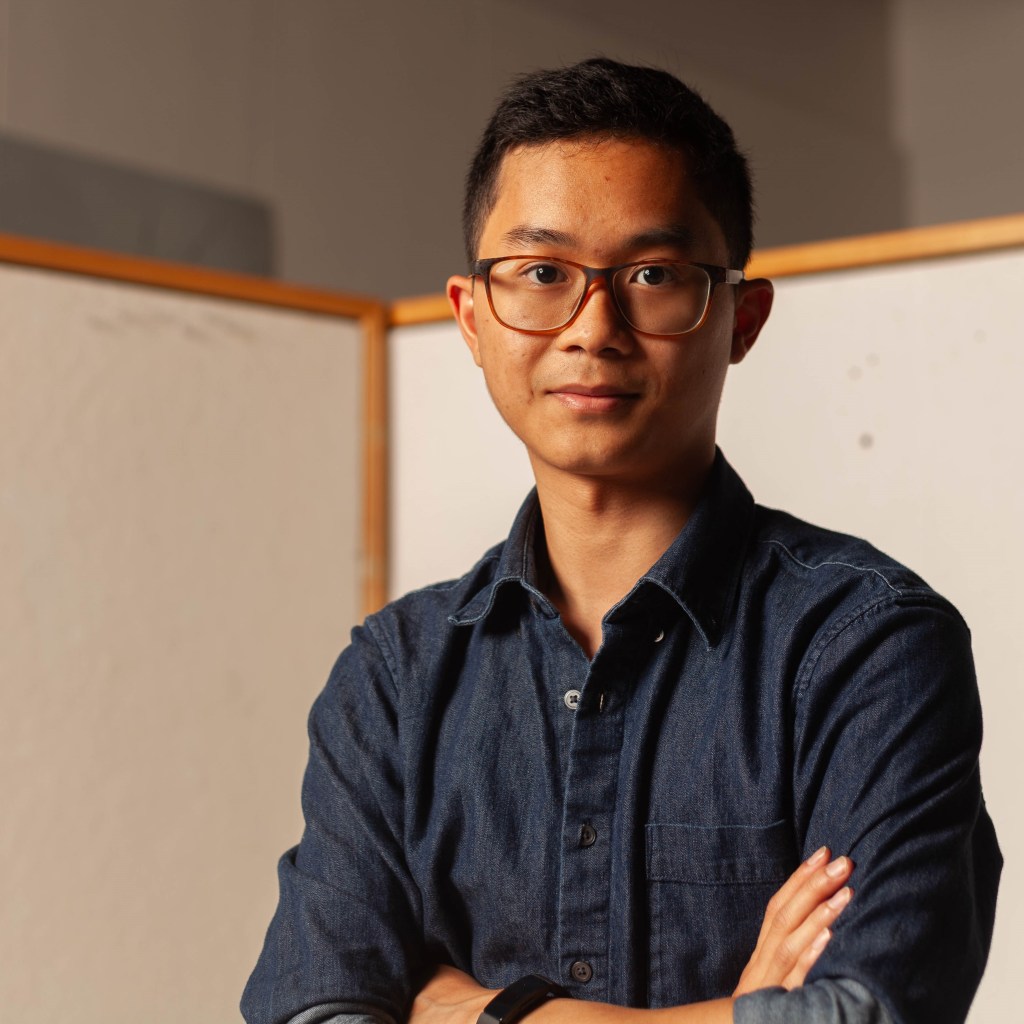
A Week in the Life
This week, my parents came from Hong Kong, where I was born and raised, to visit me and celebrate the Lunar New Year. This is both the first time they have visited the Boston area and the first time I have celebrated Lunar New Year with my family since I moved to the States in 2018. Furthermore, this is the second week of classes at MIT; as everyone settles with their class registrations, here is where the meat of the work begins.
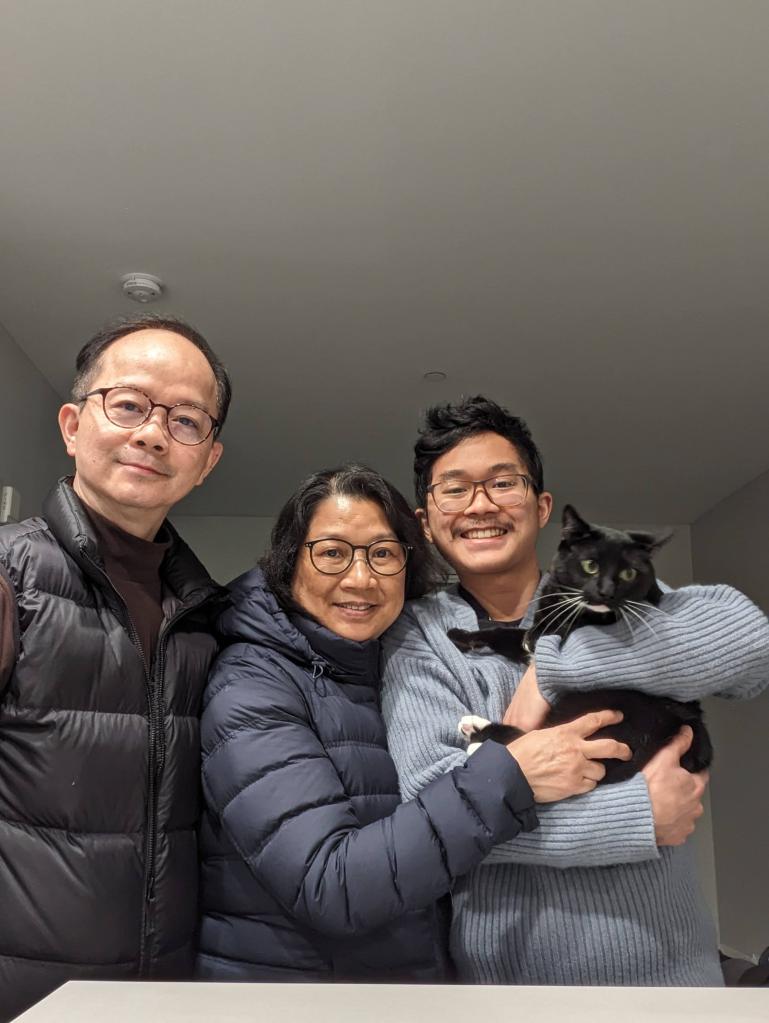
Monday:
In the morning, the eight of us in the Program attended a seminar about news features. This is important because as part of our Lab Experience course, I am covering a plasma physics lab at MIT. Coming from an engineering background, I am still learning to look for interesting anecdotes, analogies, and various senses to make cutting-edge science relatable to a general audience.
In the afternoon, I participated in the NASW Internship Fair, where we got to speak with editors across various national publications in a speed-dating format. Having attended ScienceWriters 2023 at Boulder, Colo. representing Uproot there, it was a pleasure to meet old and new friends in other science journalism programs across the States. We shared interview tips and notes about the different fellowships that were represented.
But the day’s not over yet: I got an email later in the evening that I was offered an internship interview for a reputable national outlet on Friday!
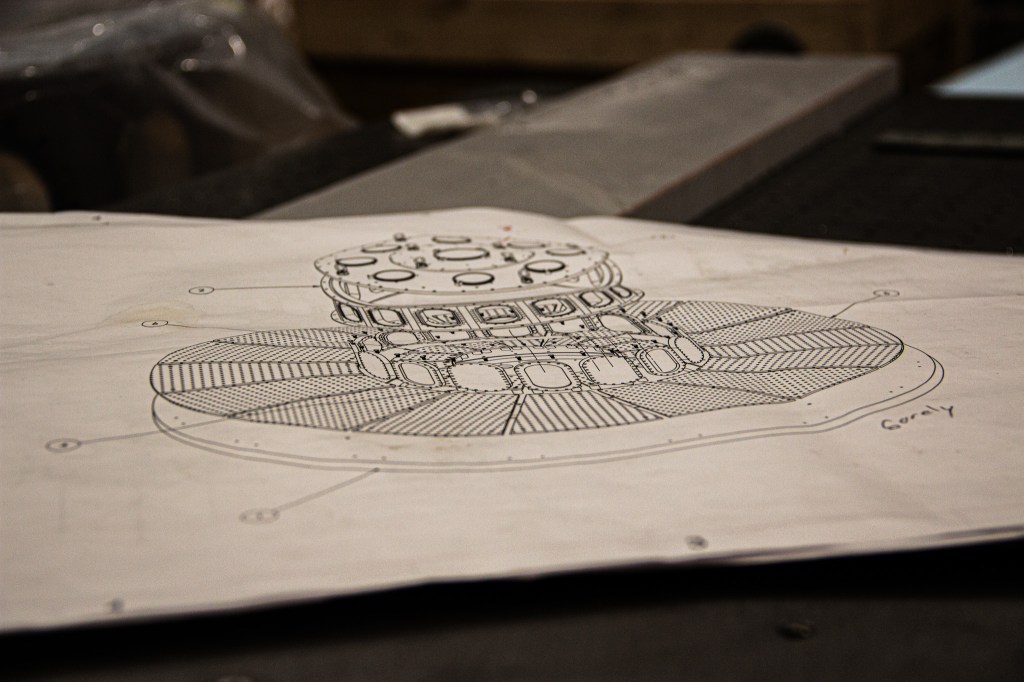
Tuesday:
In advance of a projected snowfall of up to eight inches, MIT closed its campus and canceled in-person classes. When we woke up, there was barely even a snowflake. My parents had never seen snowfall before, and they were disappointed. That being said, we still had our scheduled Advanced Science Documentary class with Tom Levenson, who also serves as my thesis advisor, via Zoom.
Tuesday hence became a day for paperwork, an underappreciated aspect of being a journalist. I continued communicating with my academic advisor to get supporting letters for a part-time freelance internship work permit for the semester, and I reviewed documents ahead of the investigative reporting team meeting tomorrow.
Wednesday:
Another part of our Lab Experience course was to write a lab profile in a field that does not fall into my usual beats of environmental justice and urbanism.
I woke up very early in the morning (at least by my standards) to visit the Center for Materials Research in Archaeology and Ethnology, the only archeological lab that is housed within a materials science department in the entire world. I observed a graduate-level course, spoke to early-career researchers, and followed up with faculty about their work in ceramic petrography, the making of very thin slices of pottery artifacts, putting them under a polarized light microscope, and identifying its mineralogical and microstructural composition.
Currently, Dr. Jennifer Meanwell, the faculty member I interviewed, is studying late classical ceramic blowpipe tips from Mayapan, Yucatan Mexico. The Mayan civilization over six centuries ago was so advanced that they would import copper from other parts of Mexico, melt it in small furnaces stoked by human-powered blowpipes, and make their ceremonial bells!
Sandwiched between my two lab visits, our instructor Angela Saini did line edits on our short investigative piece about accessibility issues in public hearings during the approval process of the East Boston substation. Our three-member project has stretched back to early last semester, so we were glad to see this environmental justice piece coming to fruition.This semester, I’m also taking Introduction to Spatial Analysis and GIS on Monday and Wednesday afternoons for listener credits. I make a lot of charts for The Xylom — it’s important to critically evaluate the data sources I am using, shore up my map-making skills, and identify new justice-focused project angles!

Thursday:
Now that we are back on campus for our Advanced Science Documentary class, we had a cinematography walkthrough in the morning by Steven Ascher, an Oscar-nominated filmmaker and author of The Filmmaker’s Handbook. We learned about why color temperature, field of depth, and camera angles are important to conveying a story. I find this masterclass particularly helpful in my other written reporting work, giving me actionable advice on how to set up scenes and properly frame a character or a place.
In the afternoon, I brought my parents on a tour of Harvard and MIT. It still boggles my mind how many scientific innovators have passed through the same hallways and tunnels as us! At the MIT Press Bookstore, the first children’s book that my dad picked up was Ada and the Galaxies. Little did he know that the author was Alan Lightman, our program’s essay and op-ed instructor. I’m feeling more and more good about my decision to come to MIT for grad school every day.
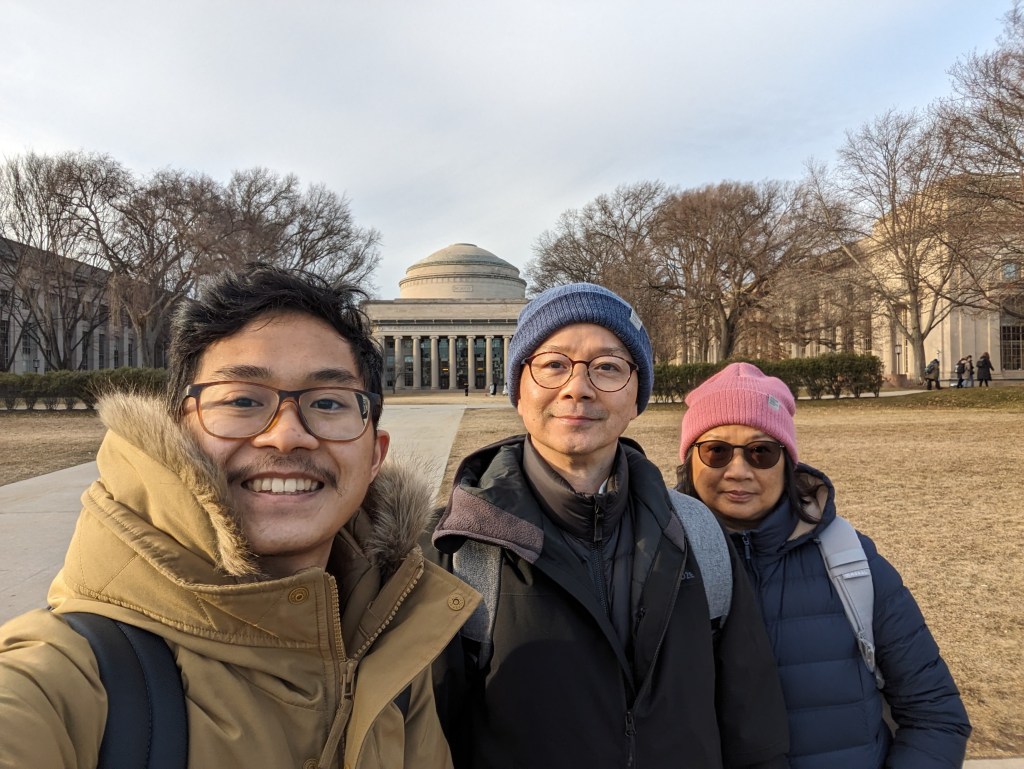
Friday:
Fridays are usually spent working on my thesis, starting with a workshop led by our Program Director Seth Mnookin. As part of my 6,000-word thesis requirements, I spent a week in South Texas reporting on the environmental health impacts of crude oil export terminals to a small town in San Patricio County along the Coastal Bend. Some of my classmates like to write a hundred words or two every day; I prefer to find an afternoon, sit down, and crank out 1000 words at once. Here, my organized Otter.ai and Adobe Lightroom folders are helping me refresh my memory to provide more complete descriptions. Once I have the quotes and the scenes, I can flesh out the connective tissue to create a logical flow for the piece.
The internship interview punctuated the day. I was told that over seventy applicants were competing for three slots, but I left feeling optimistic about my chances!
When I got home, I found out that my dad had spotted a tank of live lobsters at the local grocery store. He prepared a whole steamed lobster, raving about how reasonably priced it was compared to Hong Kong. This was the first time I had lobster cooked this way since moving to the States and it was delicious!
Saturday:
Our family took the Commuter Rail for a weekend getaway in Providence, Rhode Island. And guess what? The moment we stepped out of the station, there were three inches of snow at the State Capitol. My mom was elated. I was glad that they were glad.
After touring the city, I returned the favor from last night by preparing an Old Bay lobster boil. I successfully convinced my dad to take my entire can of seasoning home. That’s gonna last him an entire year!
Sunday:
My dad and I hiked up Longfellow Bridge for the first and last time to soak in the Boston skyline and views of the River Charles. It was windy, but hey, it’s not that often that I get to spend a week with my family. They are my driving force and my best friends.
I sent them off at Logan Airport for a midnight flight. We will meet again soon, I am sure. I can’t wait to tell them more about my science writing adventures next time!
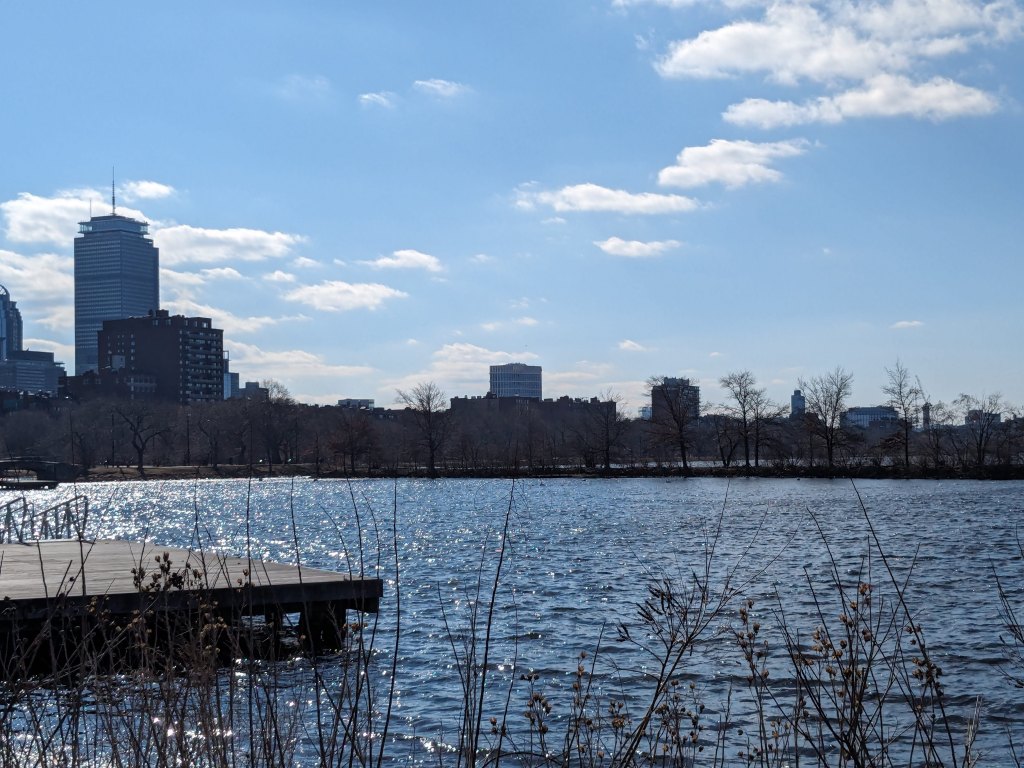
From the Wild:
What’s your current beverage of choice?
Seltzer water, unchilled. Just like the fancy Europeans.
What is one thing you always do when visiting somewhere new?
Ride their trains and public transit!
What do you never leave home without?
Loop earplugs! For when the subway gets noisy as hell, or when I need to focus on work.
Interested in writing for Uproot’s Field Notes blog? Send us an email at info@uprootproject.org!


